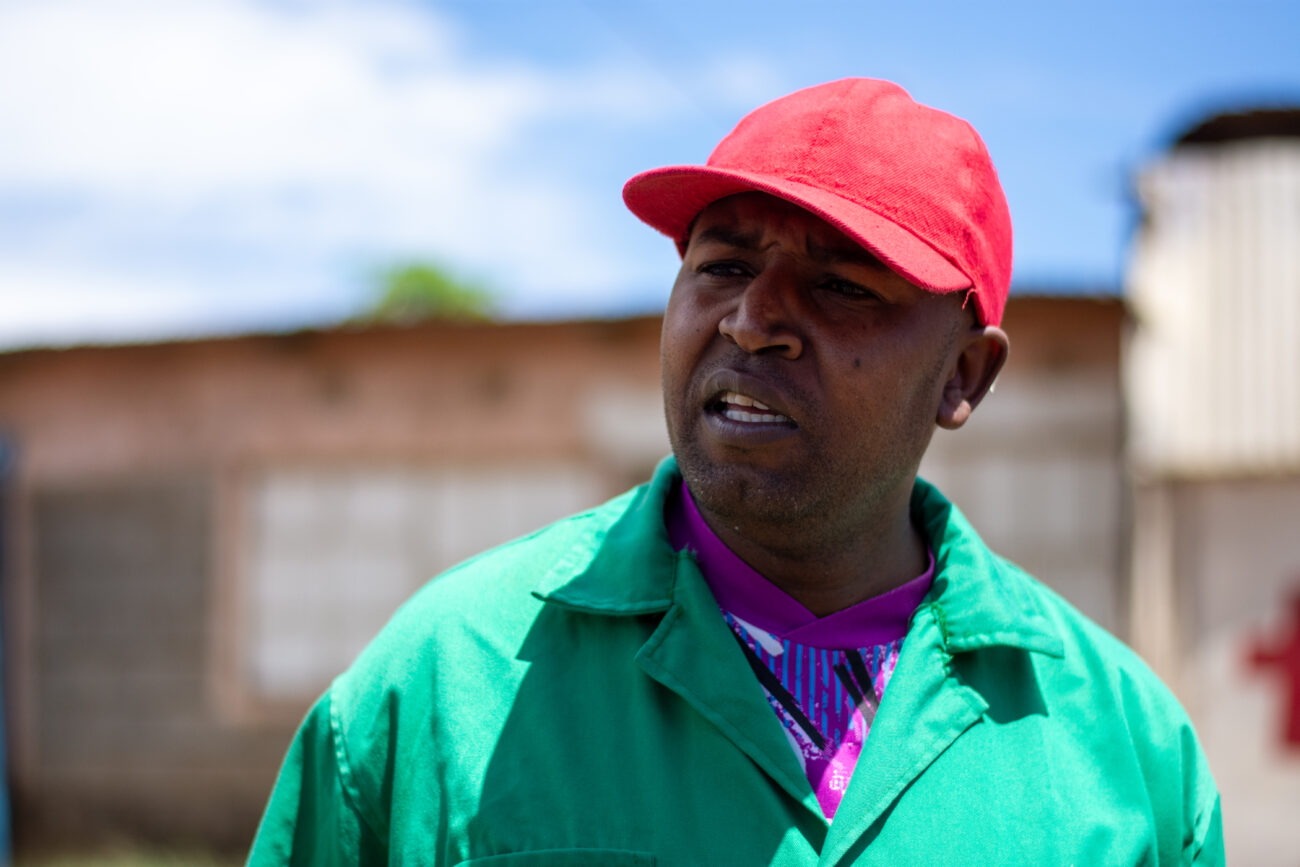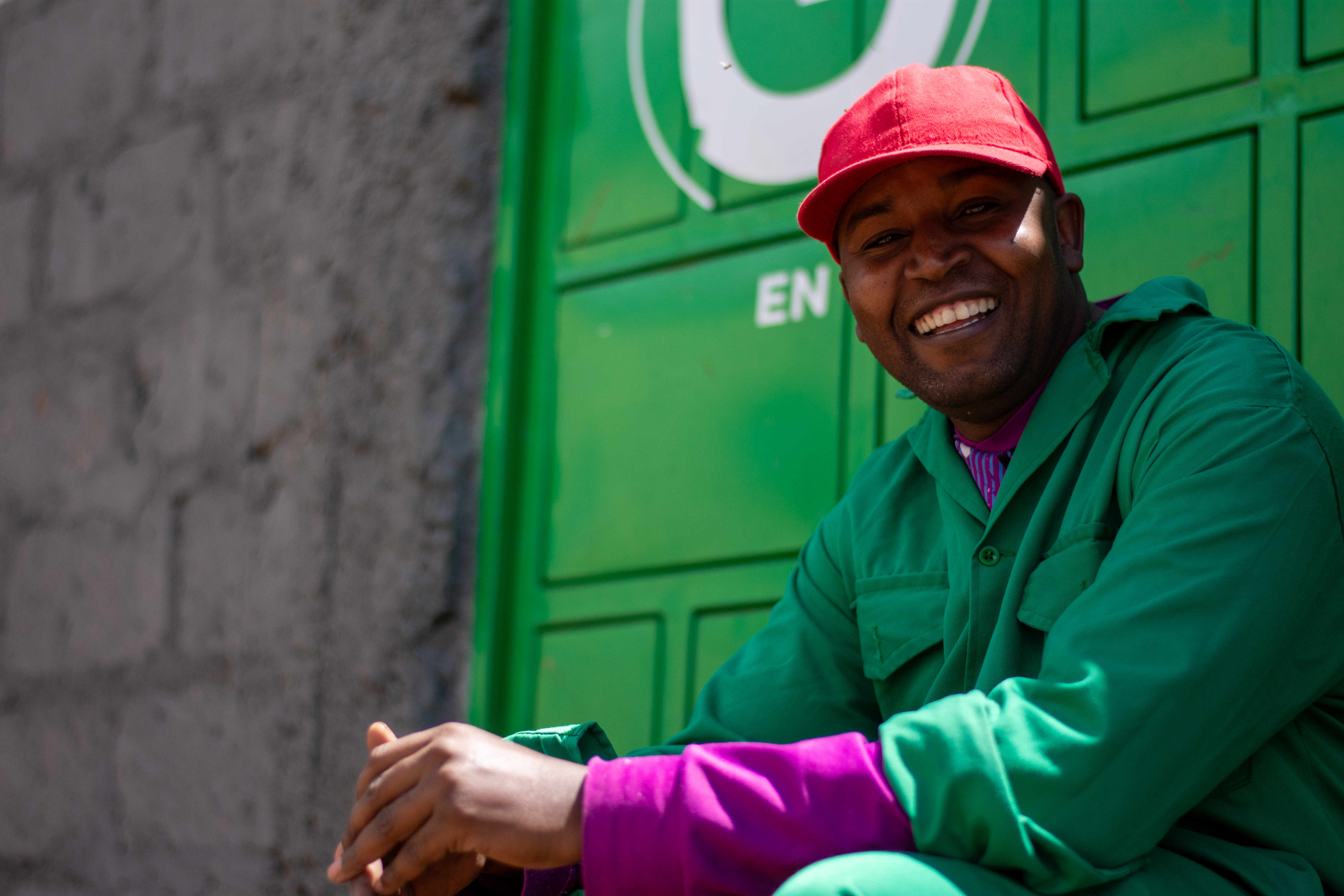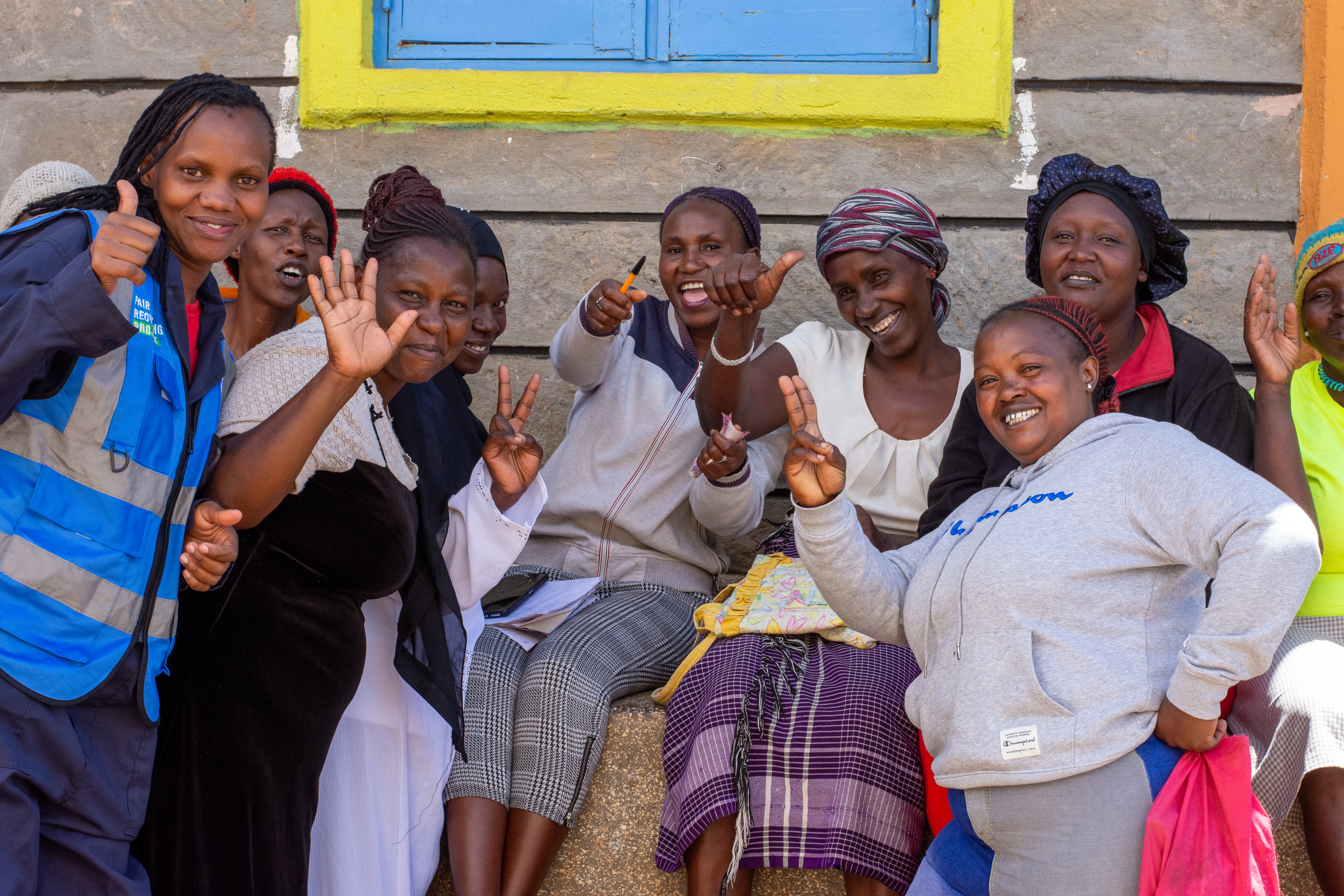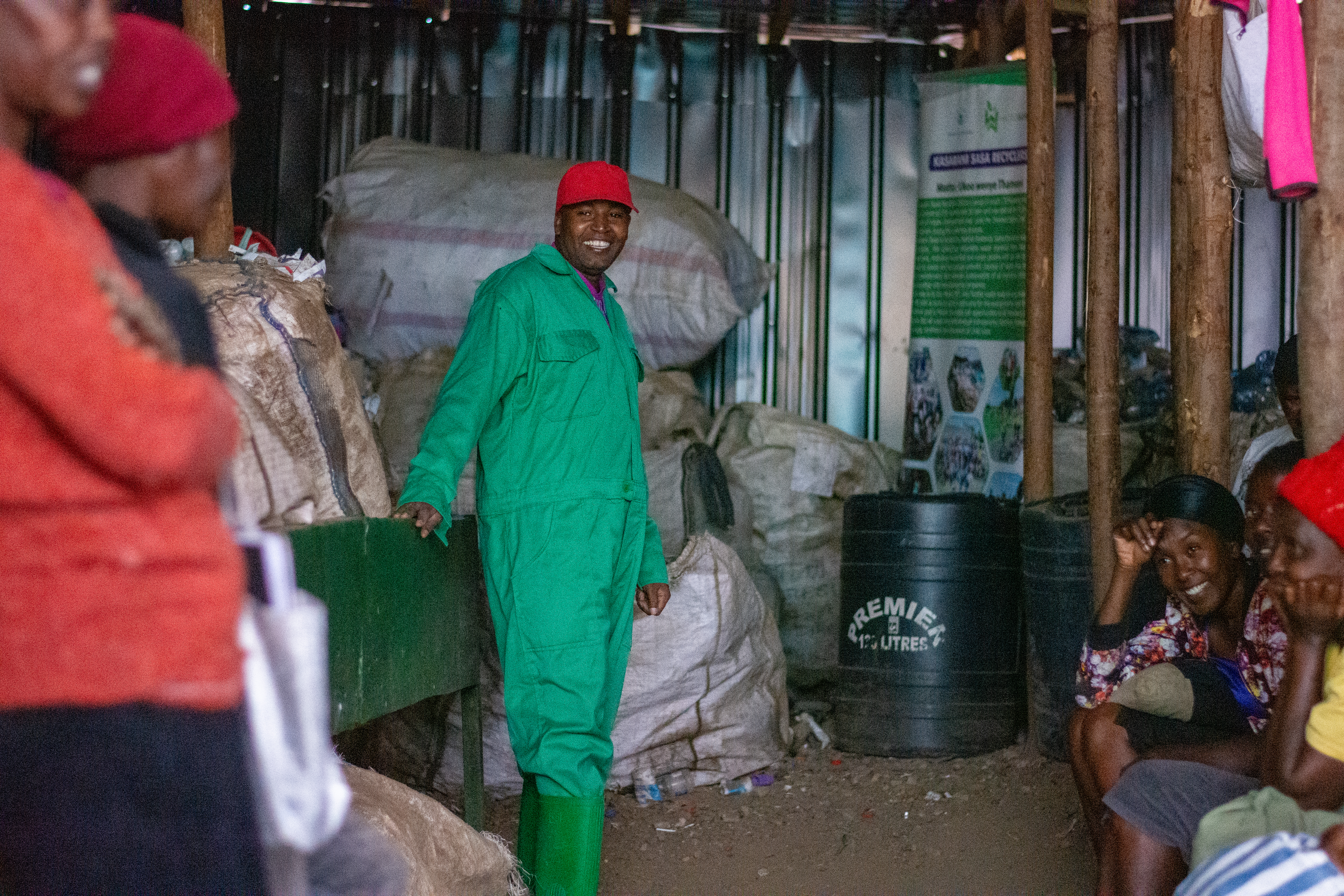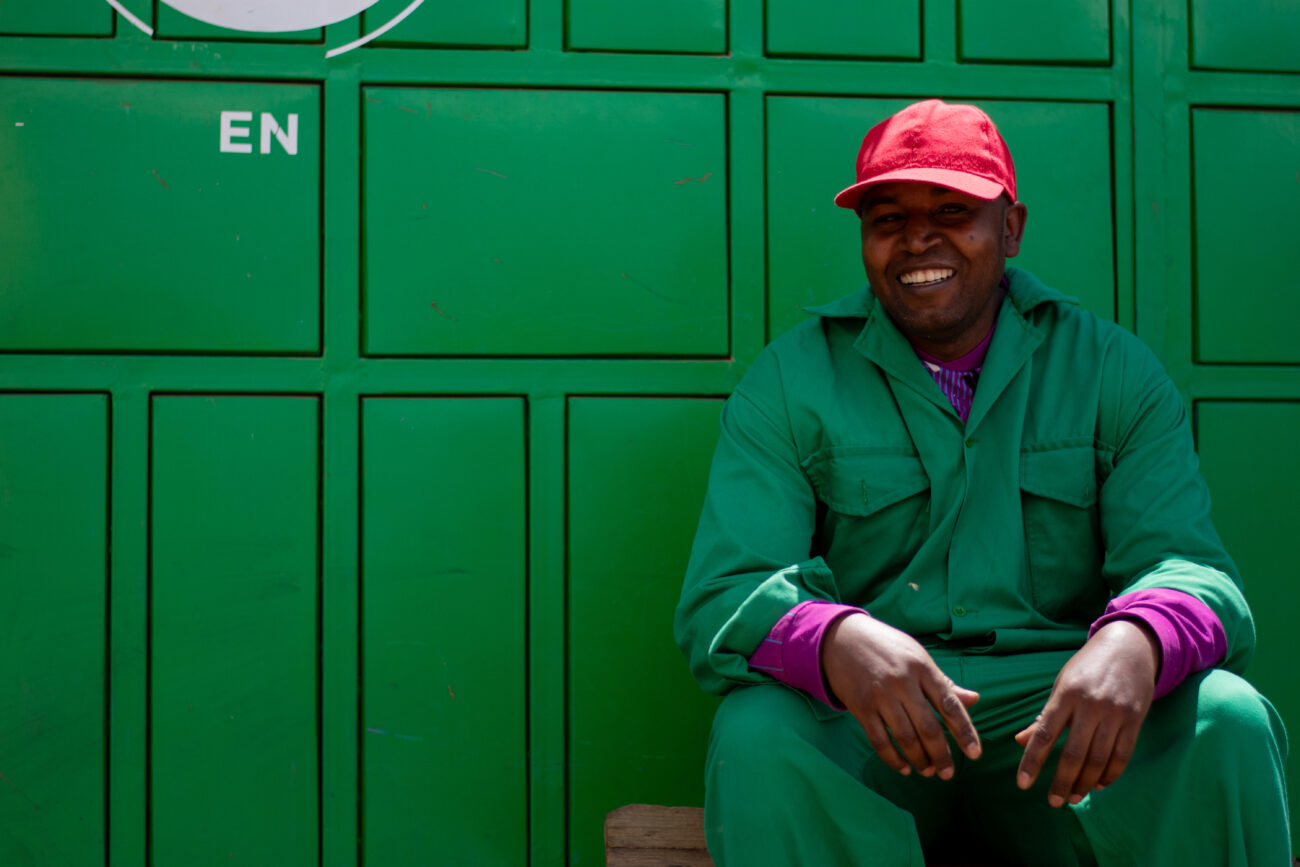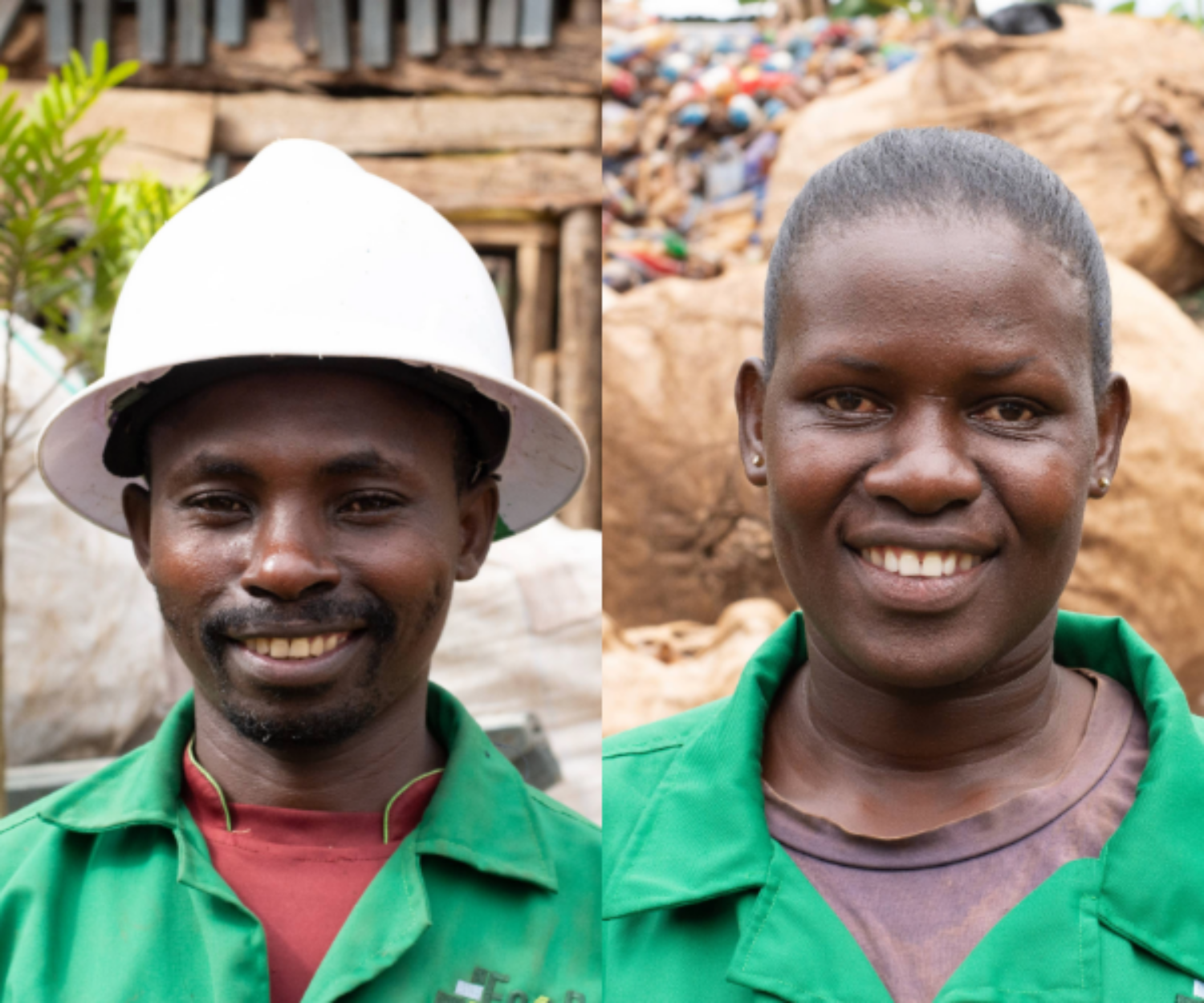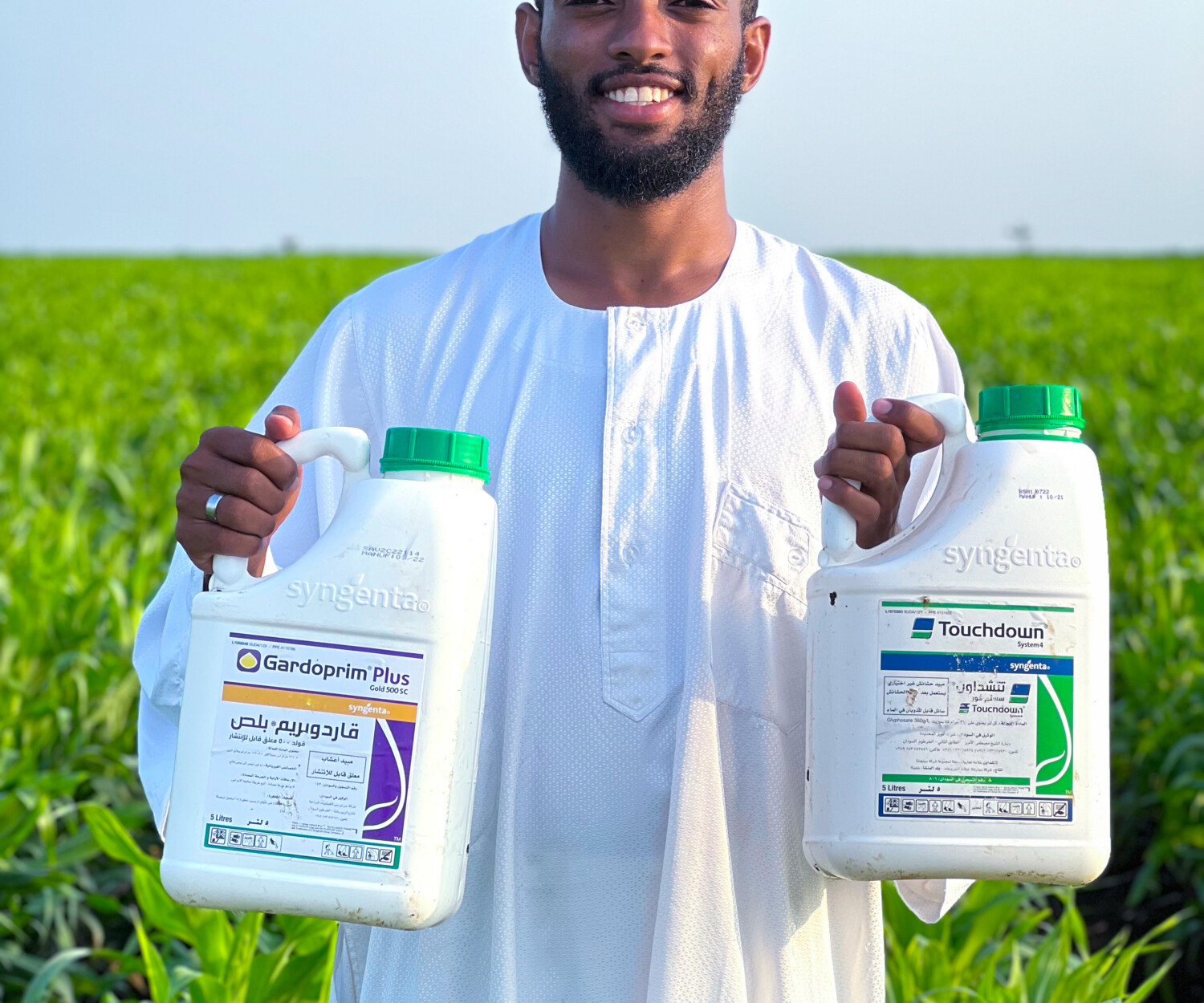Two Years Later: James’s Mission for Cleaner Streets and Stronger Communities
“Waste is a treasure – if we know how to use it, we can make money through it.”
These are the words of James Njenga, also known as Rooney, the waste aggregator CFYE had the honour of featuring in our very first impact story. Back then, James spoke passionately about his dream: to help his community, create inclusive jobs for women, and protect the environment by turning waste into opportunity. Two years later, we return to Kasarani, a neighbourhood in Nairobi, to see how far that dream has come – and what James is striving for now.
Where We Left Off
When we first met James, he had already realised the potential of waste aggregation and was determined to build a sustainable system that would benefit both the environment and his community. He knew the challenges of waste picking well: unfair prices, lack of recognition, and unsafe working conditions. “Before I met Mr. Green Africa, I used to collect garbage from households and streets and sell to middlemen. It was challenging because we worked hard but didn’t get fair prices. Life was hard – we lacked food, money for children’s school, and faced child labour issues in our community,” he recalls.
Partnering with Mr. Green Africa, CFYE’s former Implementing Partner, gave James the tools to turn his vision into action. Though the partnership has recently ended, its impact remains clear in James’s journey – he embraced the concept of Kazi Bora, better jobs, as a way to improve livelihoods and create dignity in work. “Waste management became a way to help the community and give people something to be proud of,” he says, reflecting on those early days that shaped his mission to what it is today”.
A Growing Movement
Two years later, James’s determination has grown from a small business into a community movement. The group has scaled from collecting 400 kilograms of plastic waste per month to 1.5 tonnes per week, not only improving the local environment but also attracting support from other organisations. And James himself has become a recognised figure in the streets of Kasarani – not just as a waste aggregator, but as a leader and advocate for sustainable change. “When we started garbage collection, we were only seven, and only men,” he recalls. Soon, the group grew to 30, and that was the turning point. Women began to join, recognising real inclusive opportunity in the waste sector.
Today, James leads a network of 280 members – 70% of them women, many of which are young mothers. And while the inclusive growth speaks for itself, the road to this was not without its challenges. Many had to juggle family responsibilities with work, often arriving at dumpsites late in the day when most waste was already collected. They also faced harassment, particularly when working alone.
By listening to and actively addressing these concerns, James championed one of the most impactful changes since we last spoke: the introduction of daycare centres. These centres allow mothers to leave their children in a safe environment while they work. “Professional daycare can impact lives and increase productivity,” James explains wholeheartedly believing that more daycare support would be a breakthrough for communities everywhere. Moreover, the benefits go far beyond childcare. Daycare centres prevent child labour, improve safety, and give women peace of mind while they are at work. Combined with training and support from Mr. Green Africa and CFYE, these initiatives have made the job safer for women and boosted their confidence. But for James, success is not measured in numbers alone – it’s about the lives changed.
“Through the aggregation programme, we have been able to empower our women, empower our youth, and we have been able to make our environment cleaner,” he reflects with pride.
From Trash to Treasure: James’s Message to His Community
Two years on, James’s story is no longer just about waste collection – it’s about leading change through inclusion and innovation, while creating opportunities that benefit an entire community. As our conversation ended, James shared a message for women everywhere:
“Be more proud of yourselves; you are the pillars of the community. Empowering one woman empowers a whole family.”
When we tell him that he should be proud too, he laughs and replies, “Yes, we should be proud” – a fitting conclusion to an interview where one man’s trash truly is another man’s treasure.
More stories
Interested in more?
Vacancy
Consultancy – Technical Assistant Expert
 Sade Aalto-Setala
Sade Aalto-Setala
 December 3, 2025
December 3, 2025
